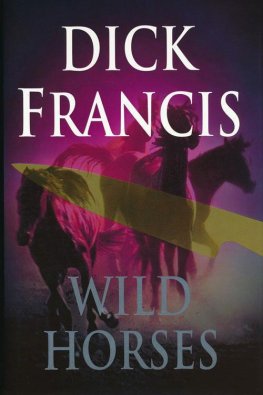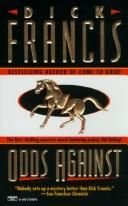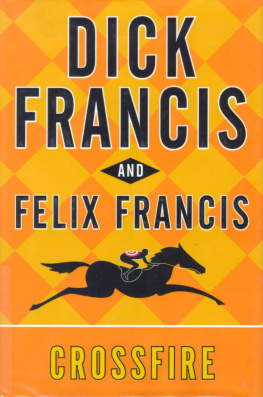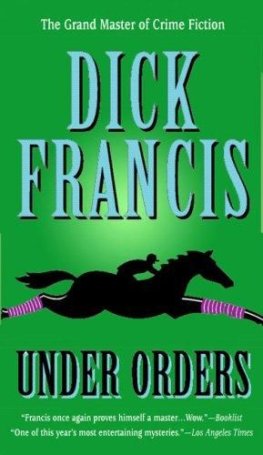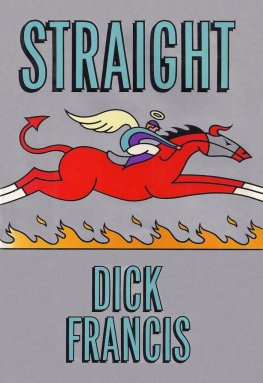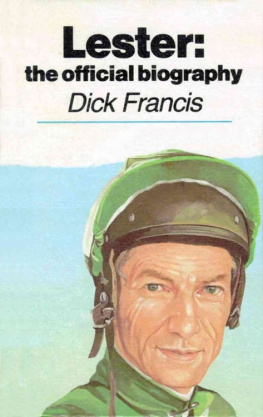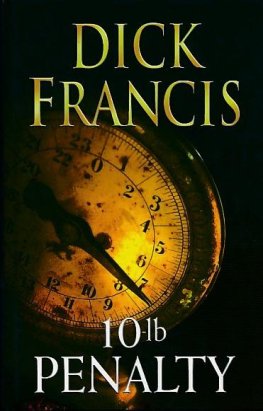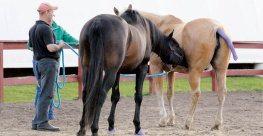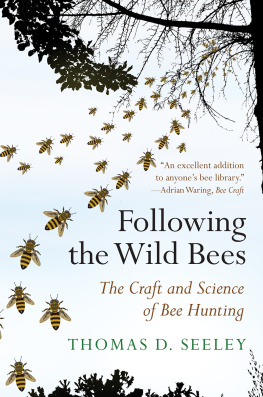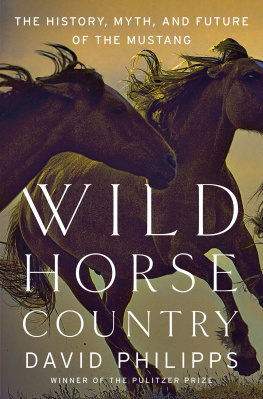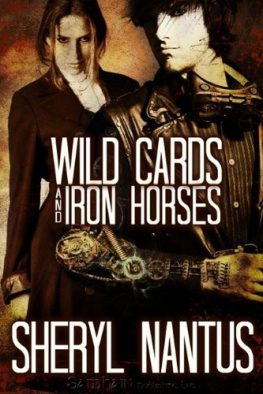We are spirits clad in veils;
Man by man was never seen;
All our deep communing fails
To remove the shadowy screen.
Christopher Pearse Cranch (18131893)Dying slowly of bone cancer, the old man, shrivelled now, sat as ever in his great armchair, tears of lonely pain sliding down crepuscular cheeks.
That Tuesday, his last, his stringy grip on my wrist tightened convulsively in a long silence while I watched his mouth tremble and move in abortive struggles to speak.
Father. The words finally wavered out; a whisper, desperate, driven by ultimate need. Father, I must make my confession. I must ask... absolution.
In great surprise and with compassion I said, But... Im not a priest.
He paid no attention. The feeble voice, a truer measure of affairs than the fiercely clutching hand, simply repeated, Father... forgive me.
Valentine, I said reasonably, Im Thomas. Thomas Lyon. Dont you remember? Ive come to read to you.
He could no longer see newsprint or anything straight ahead, though peripheral vision partly remained. I called in more or less every week, both to keep him up to date with the racing columns in the newspapers and also to let his beleaguered and chronically tired old sister go out for shopping and gossip.
I hadnt actually read to him on that day. When I arrived hed been suffering badly from one of his intermittent bouts of agony, with Dorothea, his sister, feeding him a teaspoon of liquid morphine and giving him whisky and water to help the numbness work faster.
He hadnt felt well enough for the racing papers.
Just sit with him, Dorothea begged. How long can you stay?
Two hours.
Shed kissed me gratefully on the cheek, stretching on tiptoes, and had hurried away, plump in her late seventies, forthright in mind.
I sat as usual on a tapestry stool right beside the old man, as he liked the physical contact, as if to make up for sight.
The fluttery voice persisted, creeping effortfully into the quiet room, determined and intimate. I confess to God Almighty and to Thee, my Father, that I have sinned exceedingly... and I must confess... before... before...
Valentine, I repeated more sharply, Im not a priest.
It was as if he hadnt heard. He seemed to be focusing all the energy left in him into one extraordinary spiritual gamble, a last throw of hell-defeating dice on the brink of the abyss.
I ask pardon for my mortal sin... I ask peace with God...
I protested no more. The old man knew he was dying; knew death was near. In earlier weeks he had discussed with equanimity, and even with humour, his lack of a future. He had reminisced about his long life. Hed told me he had left me all his books in his will. Never had he made any mention of even the most rudimentary religious belief, except to remark once that the idea of life after death was a load of superstitious twaddle.
I hadnt known he was a Roman Catholic.
I confess, he said, ... that I killed him... God, forgive me. I humbly ask pardon... I pray to God Almighty to have mercy on me...
Valentine...
I left the knife with Derry and I killed the Cornish boy and Ive never said a word about that week and I accuse myself... and I lied about everything... mea culpa... Ive done such harm... I destroyed their lives... and they didnt know, they went on liking me... I despise myself... all this time. Father, give me a penance... and say the words... say them... ego te absolvo... I forgive your sins in the name of the Father... I beg you... I beg you...
I had never heard of the sins he was talking about. His words tumbled out as if on the edge of delirium, making no cohesive sense. I thought it most likely that his sins were dreams; that he was confused, imagining great guilt where none lay.
There was no mistaking, however, the frantic nature of his repeated plea.
Father, absolve me. Father, say the words... say them, I beg you.
I couldnt see what harm it would do. He was desperate to die in peace. Any priest would have given him absolution: who was I cruelly to withhold it? I was not of his faith. I would square it later, I thought, with my own immortal soul.
So I said what he wanted. Said the words, dredging them from memory. Said them in Latin, as he would clearly understand them, because they seemed less of a lie that way than in bald English.
Ego te absolvo, I said.
I felt a shiver through my body. Superstition, I thought.
I remembered more words. They floated on my tongue. Ego te absolvo a peccatis tuis, In nomine Patris et Filii et Spiritus Sancti. Amen.
I absolve you from your sins in the name of the Father and of the Son and of the Holy Ghost. Amen.
The greatest blasphemy of my life to date. God forgive me my sin, I thought.
The dreadful tension subsided in the old man. The rheumy near-blind eyes closed. The grip on my wrist loosened: the old hand fell away. His face relaxed. He faintly smiled, and then grew still.
Alarmed, I felt for a pulse under his jaw and was relieved to feel the threadlike beat. He didnt move under my touch. I shook him a little, but he didnt wake. After five minutes I shook him again, more strongly, without results. Indecisively then I got up from my seat beside him and, crossing to the telephone, dialled the number prominently written on a notepad nearby, to get through to his doctor.
The medicine man was less than pleased.
Ive told the old fool he should be in hospital, he said. I cant keep running out to hold his hand. Who are you, anyway? And wheres Mrs Pannier?
Im a visitor, I said. Mrs Pannier is out shopping.
Is he groaning? demanded the doctor.
He was, earlier. Mrs Pannier gave him some painkiller before she went out. Then he was talking. Now hes in a sort of sleep from which I cant seem to wake him.
The doctor growled a smothered curse and crashed his receiver into its cradle, leaving me to guess his intentions.
I hoped that he wouldnt send a wailing ambulance with busy figures and stretchers and all the rough paraphernalia of making the terminally ill feel worse. Old Valentine had wanted to die quietly in his own bed. Waiting there, I regretted my call to the doctor, thinking that Id probably set in motion, in my anxiety, precisely what Valentine had most wanted to avoid.
Feeling stupid and remorseful, I sat opposite the steadily sleeping man, no longer on a stool beside him but in a more comfortable armchair.
The room was warm. He wore blue cotton pyjamas, with a rug over his knees. He sat near the window, bare branched trees outside giving promise of a spring he wouldnt know.
The study-like room, intensely his own, charted an unusual journey through time that had begun in heavy manual labour and ended in journalism. Born the son of a farrier, hed been apprenticed to the forge in childhood, working the bellows for his father, skinny arms straining, young eyes excited by the noise and the fire. There had never been any question that he would follow in the trade, nor had he in fact veered towards anything else until his working pattern had long been settled.
Framed fading photographs on his walls showed a young Valentine with the biceps and pectorals of a giant, a prizewinning wielder of brute power with the wide happy grin of an innocent. But the idyll of the village smithy under the chestnut tree had already long gone. Valentine in his maturity had driven from job to job with his tools and portable brazier in a mobile working van.
He had for years shod a stableful of racehorses trained by my grandfather. Hed looked after the feet of the ponies Id been given to ride. He had seemed to me to be already a wise man of incredible age, though I knew now hed been barely sixty-five when I was ten.

